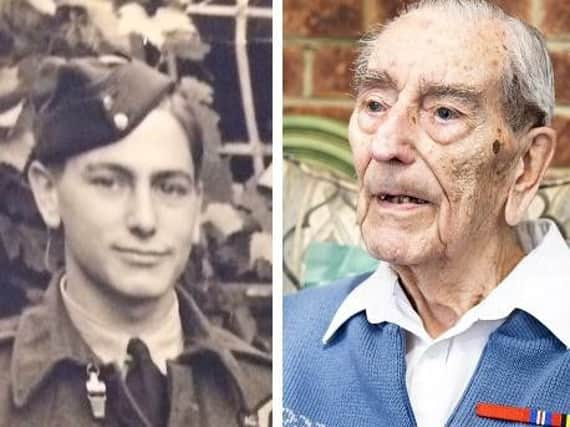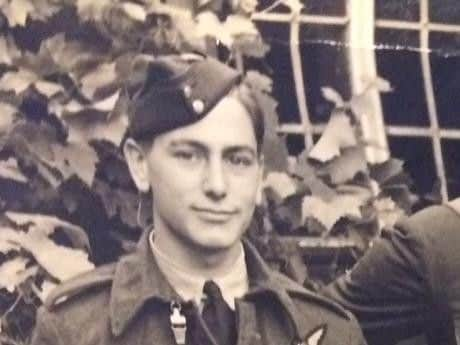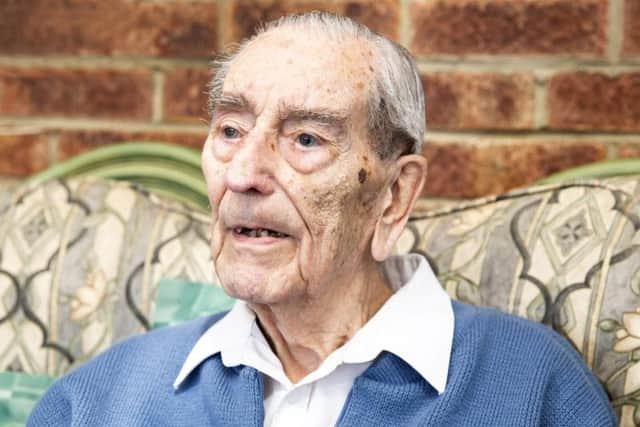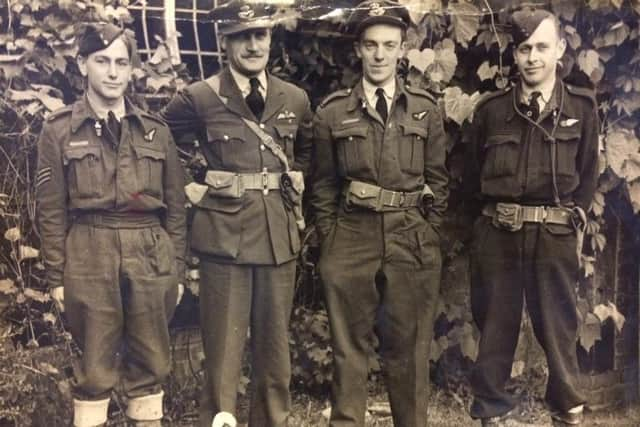'You've got a job to do first': How D-Day operations could not stop Northampton veteran getting home for wife's birthday


In June 1944, Warrant Officer George Verden, aged 21, was ready to go on leave and see his wife for her birthday.
But when he tried to leave the base at RAF Guildford, the guard stopped him at the gate.
Advertisement
Hide AdAdvertisement
Hide Ad"He said to me, 'where the hell are you going?'", George recalls for the Chronicle & Echo. "'Turn around. You've got a job to go on.'"


That job was Operation Deadstick, and the night of the attack was June 5 - just hours before the D-Day landings.
George - who today is 94 and lives in Kingsthorpe - told the Chron: "You never knew what you were going to do until you were sent out on the next flight. You went into the briefing room, got told what your target was and you took off."
For George's aircrew, their target was what is now known as Pegasus Bridge, a wooden-slat bridge which crossed the Caen canal in Normandy. The bridge was occupied by the Germans and if the Allies wanted any chance of capturing Caen in the D-Day operations, Pegasus was their only chance of cross the canal.
Advertisement
Hide AdAdvertisement
Hide AdGeorge said: "It was vital to the mission. We were to bomb around the bridge without destroying it so the paratroopers could go in and take it on foot."


George was a rear gunner and a wireless operator for his crew. His position was in "tail end charlie" in the tail of the plane - which was often the first target for the enemy.
He said: "It meant I got shot at first.
"Anybody who was flying a mission got eggs and bacon for breakfast. It meant a lot. You couldn't get that for love nor money back then. But you got it if you were flying.
"Then, at least you got a good breakfast if you got shot down."
Advertisement
Hide AdAdvertisement
Hide Ad

So George and his squadron flew out. Before midnight they were above the bridge and the true first strikes of the D-Day operation began.
"We bombed hell around there," said George.
"People say how brave we all must have been. Bravery never came into it. We weren't brave men - we were proud men who made our own luck who did the job we were told to do."
Pegasus Bridge was taken by midnight - mission accomplished. George landed back in Britain by 2am, and largely none the wiser of how important his squadron's flight had been.
"You were never told more than you needed to know," George said. "I didn't know about the big operation the next day.
Advertisement
Hide AdAdvertisement
Hide Ad"But I went on leave alright. The mission meant I had lost two days so I only had five days left.
"When I saw my wife [Doreen] I told her what had happened. She said 'ah well, you're back aren't you' and that was that.
"If you were told to do a job back then, you blooming well did it."